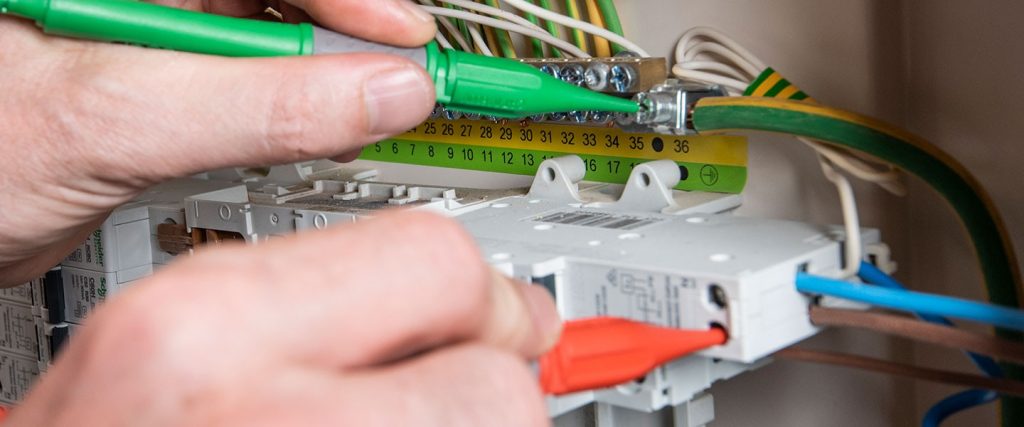In the hospitality industry, two key safety issues have been identified by the Health and Safety Executive (HSE) that risk causing serious and even fatal injuries to both staff and customers: electrical faults and fire hazards.
Businesses in the hospitality industry often operate large-scale electrical systems, which are subject to a number of faults including wear and tear, corrosion, and overloading,making regular electrical testing is vital. Inthis article, we will summarise the precautions you should take to ensure your electrical appliances are fit for purpose and compliant with HSE regulations.
1. Ensure all socket circuits are protected by a working RCD
Where circuits supply socket outlets or are located in bathrooms where a shower or bath is present alongside lighting for example, the corresponding circuits should be protected by a residual current device (RCD). RCDs are located in the electrical distribution board and should be tested on a regular basis by pressing the test button (usually marked with a ‘T’). If the switch does not trip on pressing the test button, an electrician should be contacted to complete the necessary remedial work.
2. Ensure installation is regularly inspected and tested
To uphold your EICR, it is recommended that you have your fixed wire testing completed every 5 years (annually for pool areas) and that portable appliances are tested annually (subject to risk assessment). An EICR, or electrical installation condition report, is an in-depth inspection of a property’s electrical installations to assess the condition of electrics and identifying any necessary remedial work. It is important that as a business, you are always putting the safety of your staff and customers first and a regular inspection of everything the EICR covers will help you to do this.
3. Records and circuit charts should be well maintained and updated regularly
Each time a professional electrician or electrical engineer carries out work on your property, they should provide the necessary paperwork including a new circuit chart. This helps any future electrician to see the previous installation work and allows for smoother testing when the time comes, saving time and preventing any potential issues with needing to isolate electrical circuits in various parts of the building which could cause inconvenience to the day-to-day running of your business. It is important to do this for overall areas of the hotel, including the front and back of house to avoid breaking any HSE regulations.
4. Plan testing in advance
It is highly advantageous to ensure preparations are made in advance for any testing that needs to be carried out on the premises. The main reason for this is to ensure that all your EICR paperwork is up to date, and you can easily do this by spreading the work and cost over 5 years, carrying out 20% each year up until the 5-year deadline when the compliance is due to be renewed. This also minimises disruption to your business. By planning the work in advance, you will also be able to reserve whole floors of the building rather than individual rooms (such as in a hotel) which enables the engineers to work much faster and minimise the disruption to your business so that service can resume as quickly as possible after the testing has been carried out.
Obtain an EICR with Intersafe
At Intersafe, we provide EICR reports to a wide range of industries, including those in hospitality, such as hotels and restaurants. We employ experienced engineers across England to guarantee a highly accessible and trustworthy service, providing a bespoke solution to meet the needs of each client. Find out more by making an enquiry about our Fixed Wire Testing service today via our contact page.




